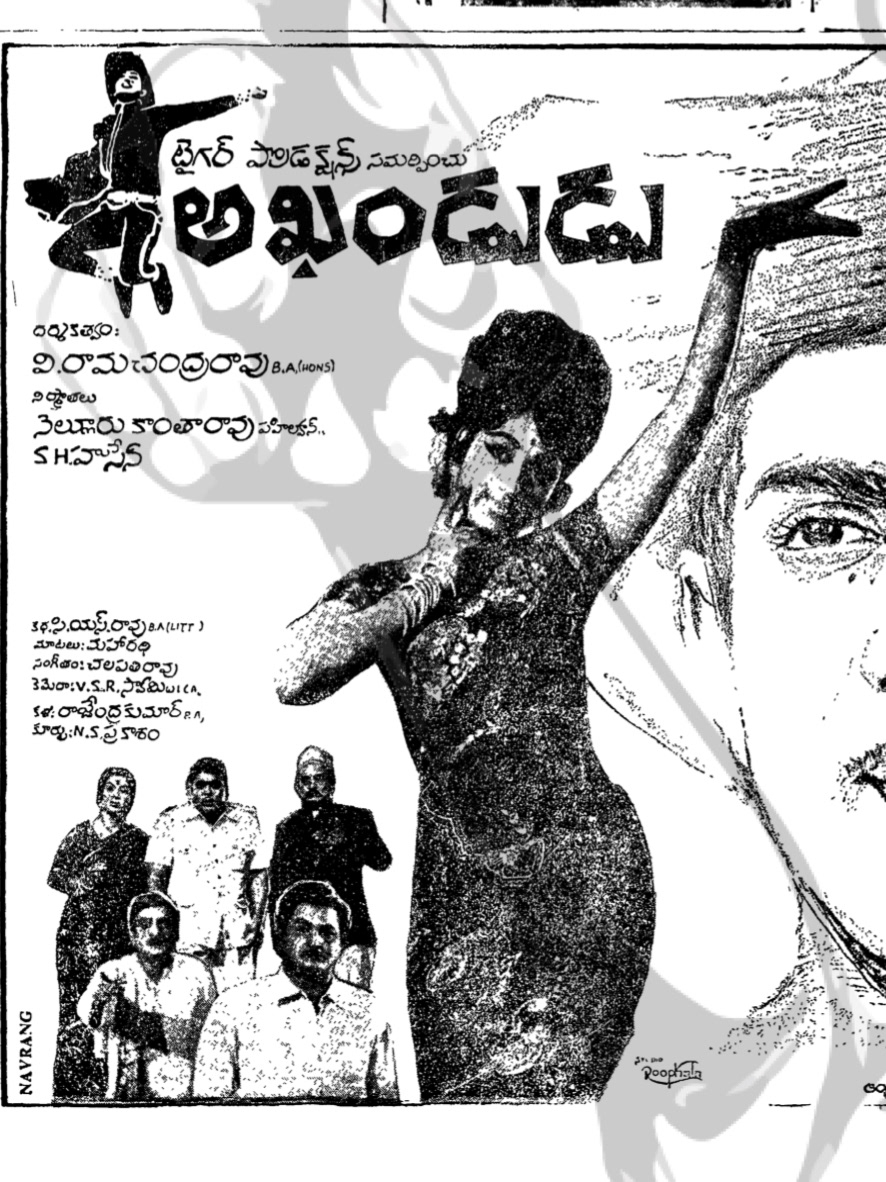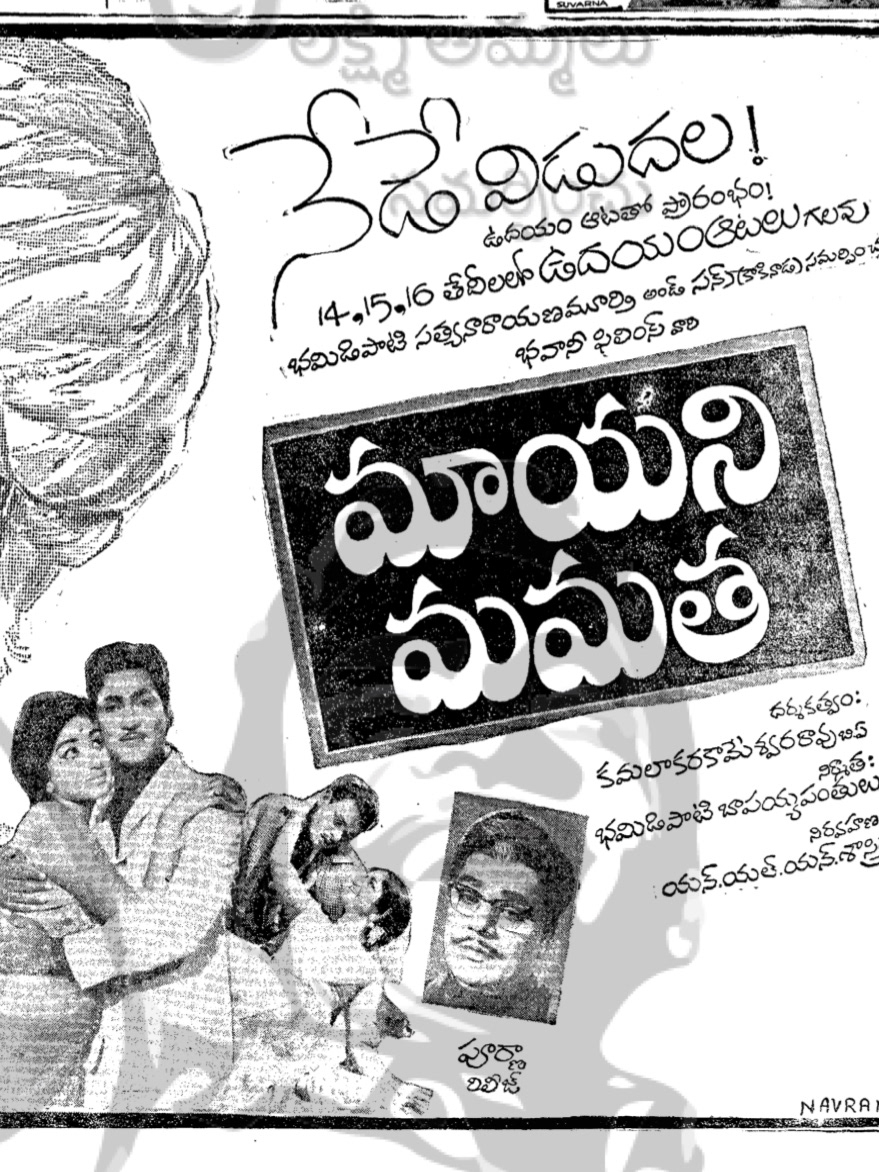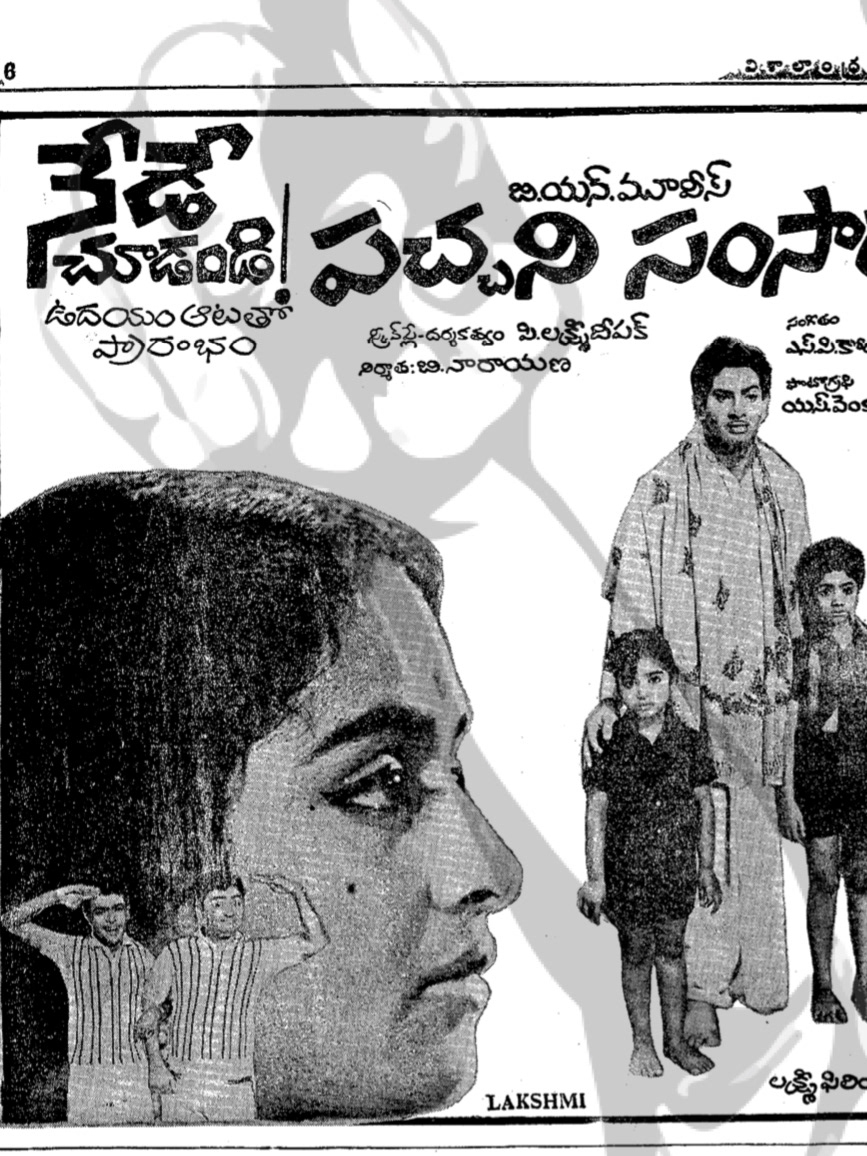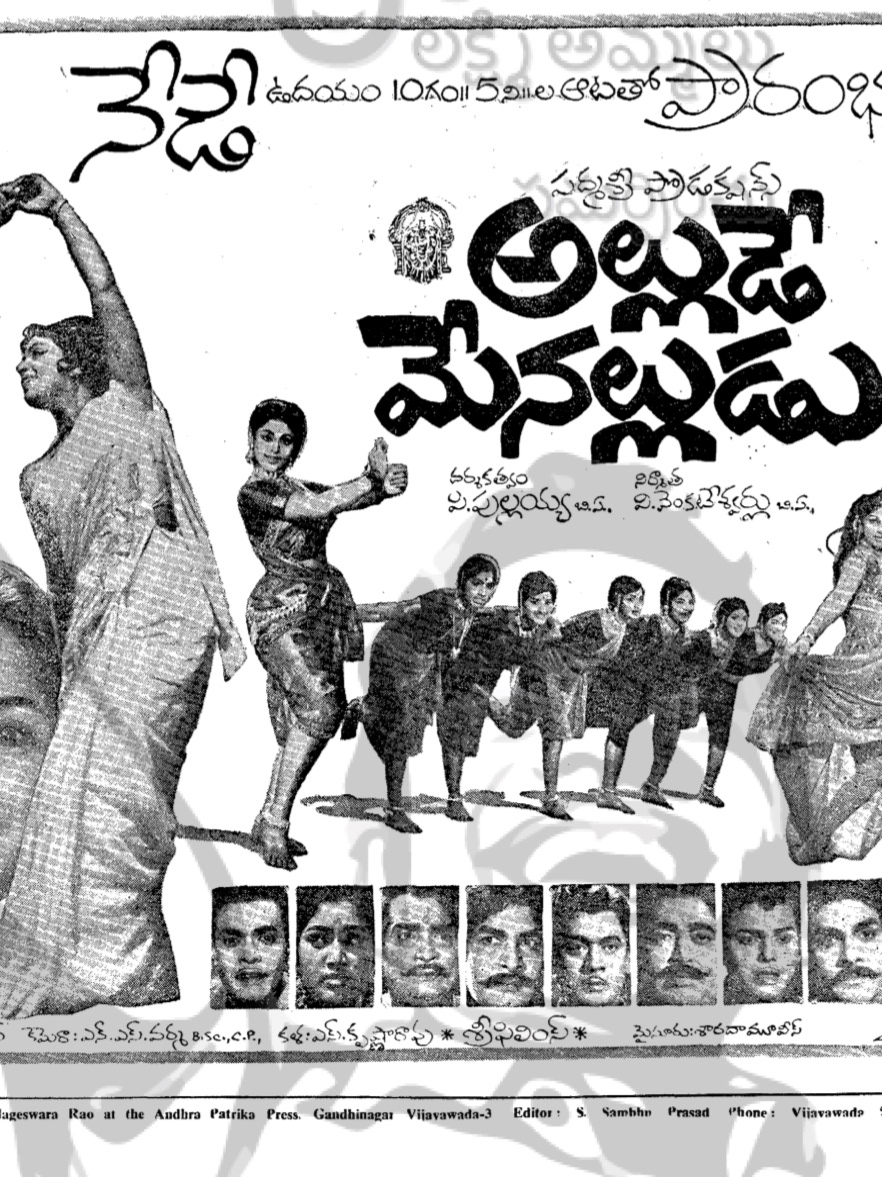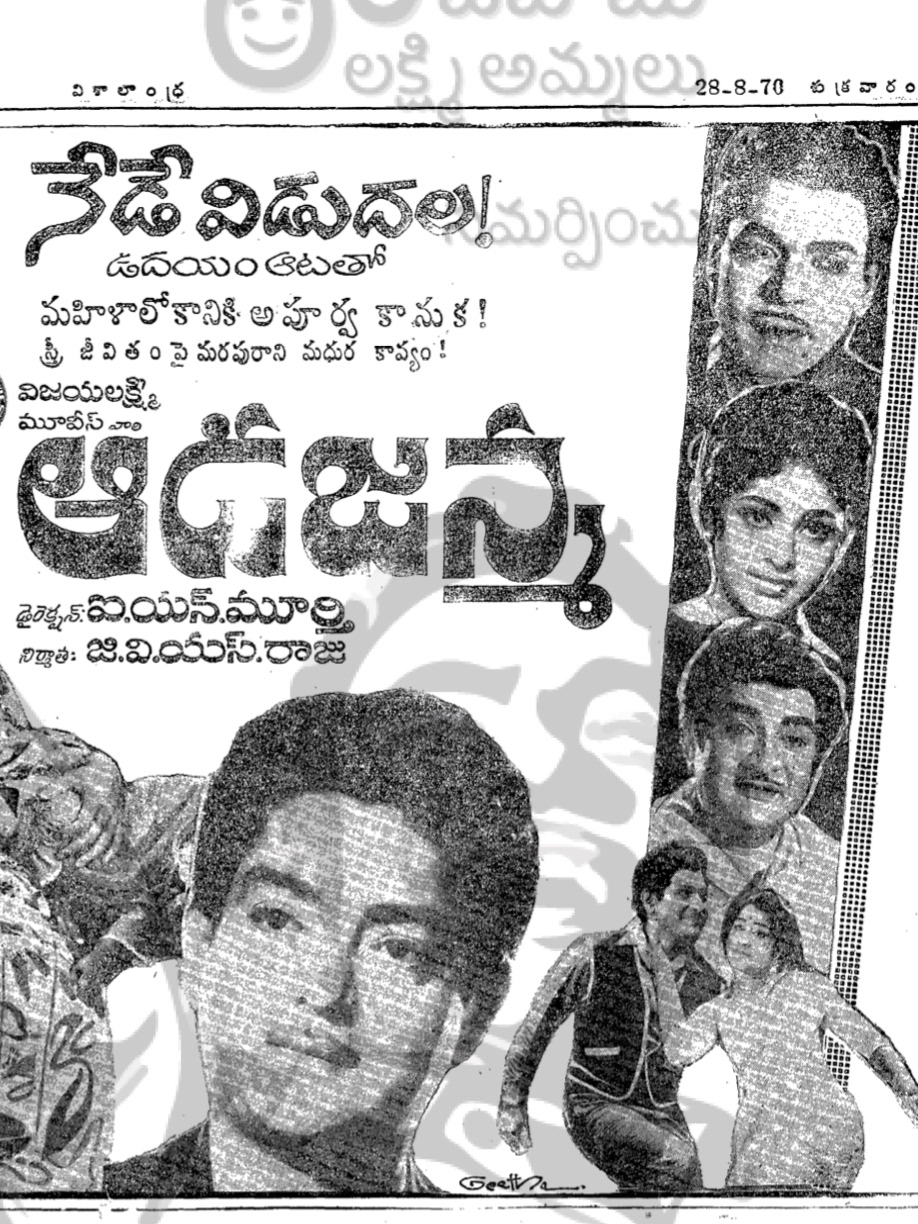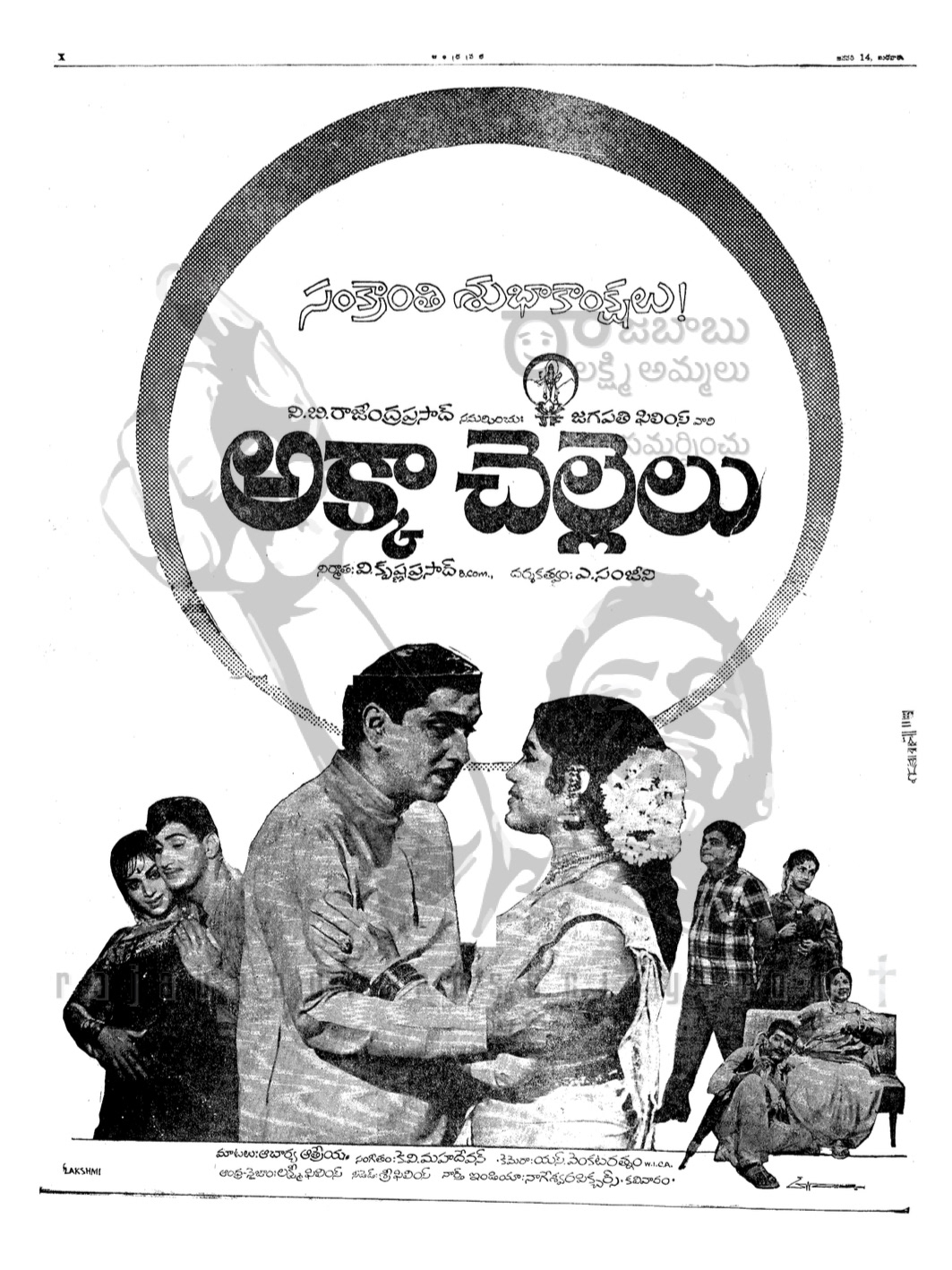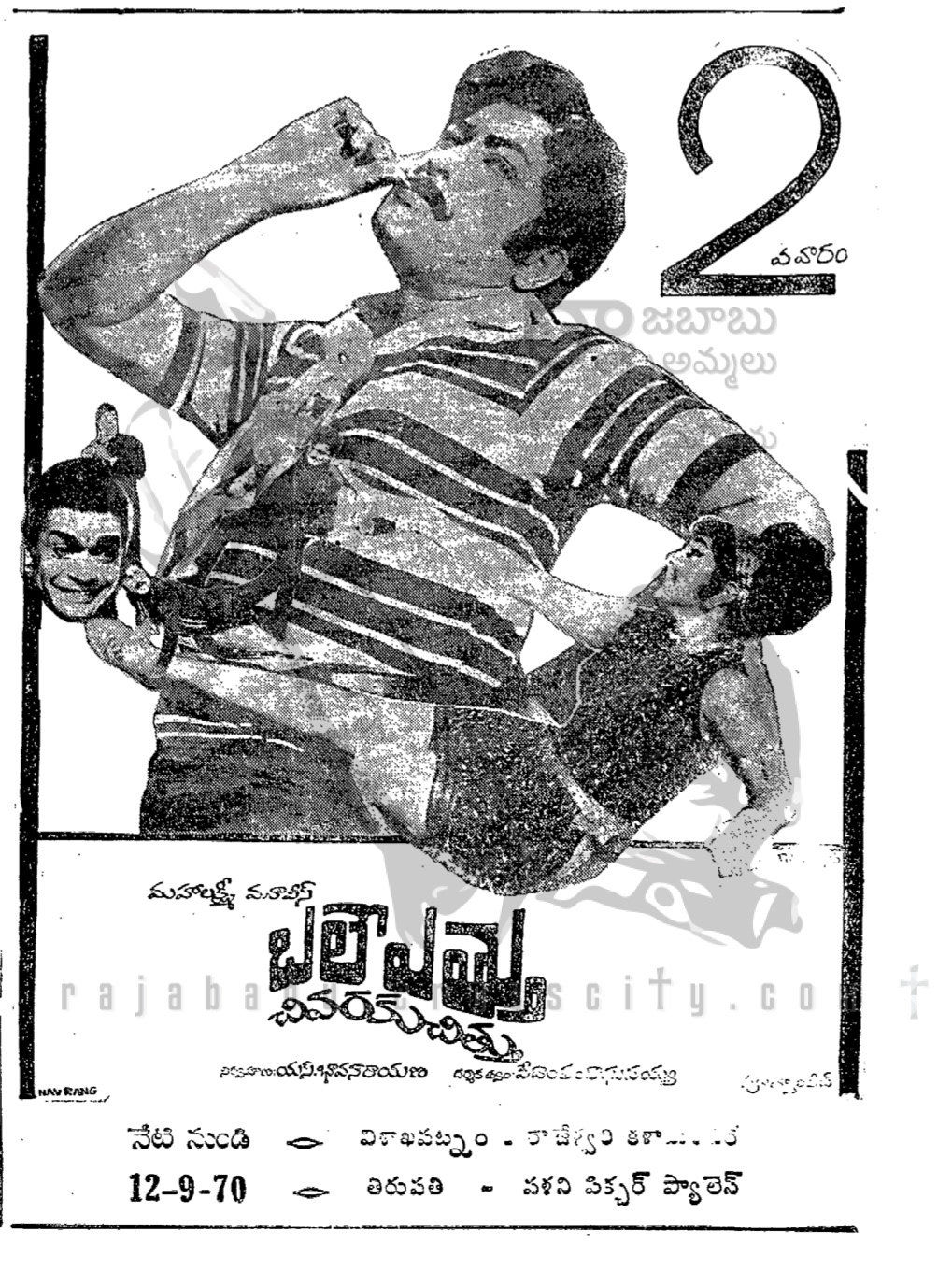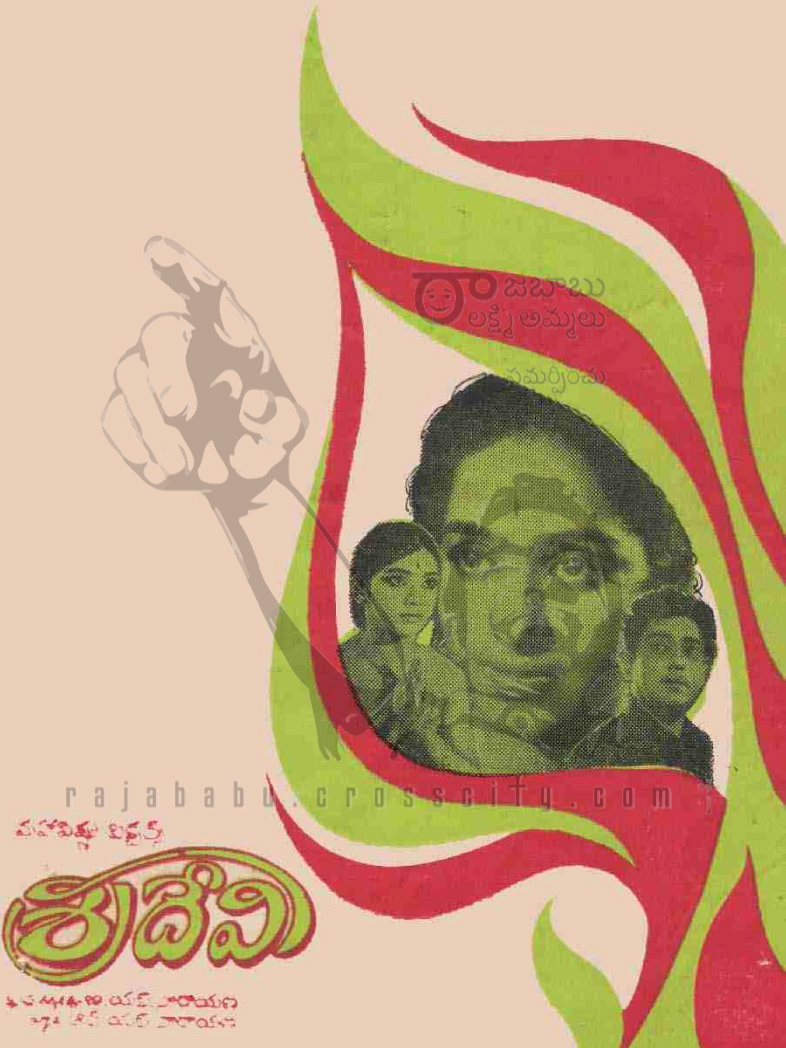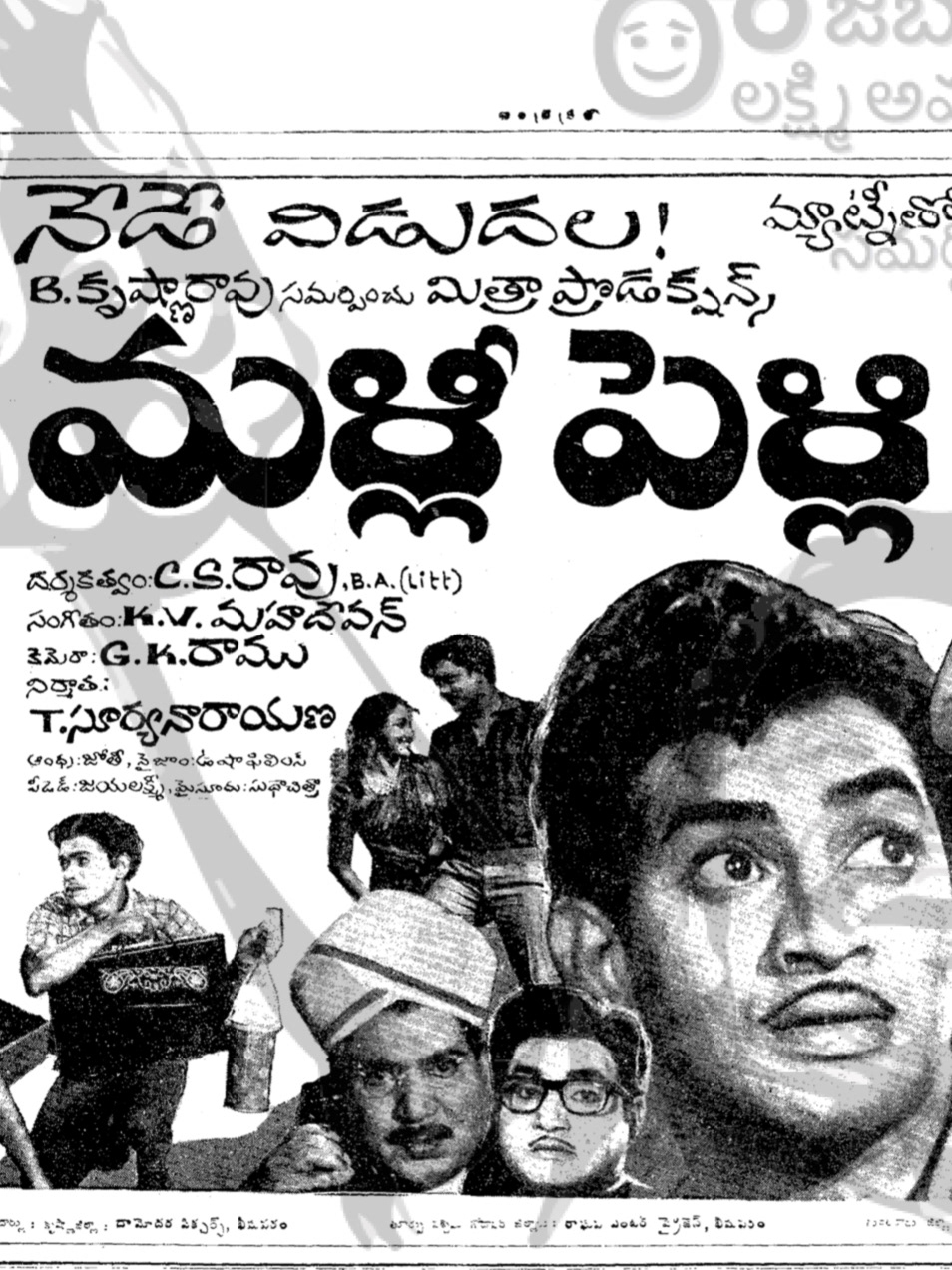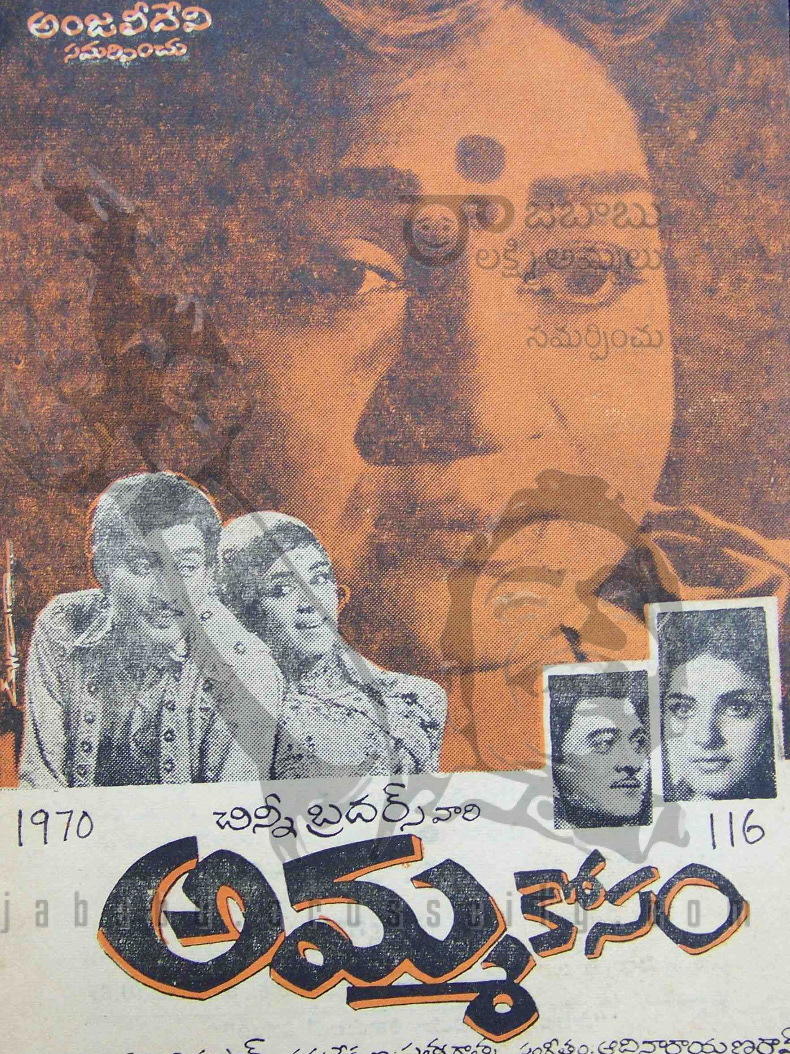Desamante Manusuloy
C.S. Rao
Country: India; Year: 1970; Language: Telugu
Studio: Film Crafts
Producer: K.M.K. Naidu, G.K. Naidu; Cinematographer: G.K. Ramu; Editor: S.P.S. Veerappa; Composer: Saluri Rajeswara Rao; Lyricist: Dasaradhi, C. Narayana Reddy, Arudra, Kosaraju Raghavaiah Choudhury, Sri Sri
Cast: Sobanbabu, Chandrakala, Chittor V. Nagaiah, Rajababu, Vijayalalitha, Hemalatha, Jyothilakshmi, Anjali Devi, S.V. Rangarao, Mukkamala, Allu Ramalingaiah, Dulipala, Sridevi Kapoor
Topic: Original Language, Released
Censorship Certificate Number: 65587; Date of Censor Certificate: October 6, 1970; Certification Centre: Madras; Rating/Certificate: U (Unrestricted Public Exhibition); Length: 4800.36 Mts;
Release Date: October 9, 1970
IMDb ID: 0261644
Child Artist: Sridevi Kapoor
Executive Producer: Tripuraneni Maharadhi; Dialogue: Tripuraneni Maharadhi
Singer: P.B. Srinivas, S. Janaki, S.P. Balasubrahmanyam, P. Susheela, L.R. Eswari, Ghantasala Venkateswara Rao
Art Director: V. Suranna
C.S. Rao (Director)
Chittajalu Srinivasa Rao (b. 1924) Born in Kakinada, AP. Mainstream Telugu filmmaker of sentimental dramas, mythologicals and contemporary socials. Also worked in Kannada. Son of C. Pullaiah, in whose children’s films Dhruva and Ansuya (both 1936) he acted. Sponsored commercial Telugu theatre group Navagraha Kootam. Joined Gemini as assistant director (1946) and worked with Pullaiah, Ramnoth, A.K. Sekhar and on Uday Shankar’s Kalpana (1948). A major figure in perpetuating the cultural orthodoxy of e.g. Vel Pics and the early Gemini in combining values of entertainment with sentimental moralism, a trend continued by his assistants A. Sheshgiri Rao, Ramchandra Rao, etc. Married actress Rajasulochana, a consistent presence in his work since the late 50s.
Saluri Rajeswara Rao (Composer)
(b. 1922) Composer; son of Sanyasiraju, a music teacher at the maharaja’s court in Vijayanagaram. Achieved some success as a child performer of the folk Harikatha at festivals and was recorded by the Hutchins Gramophone company. Introduced into Telugu films as child actor in Vel Pics’ Shri Krishna Leelalu for his ability to sing and play harmonium and tabla. First composed music for Jayapradha and, according to music historian V.A.K. Ranga Rao, was the first Telugu composer to use a Western conception of orchestral harmony. His second film, Ramabrahmam’s Illalu, aimed for a sense of modernity, e.g. assimilating styles associated with R.C. Boral and Timir Baran. However the music was not a commercial success. Ranga Rao described their compositions for R. Balasaraswathi, released on disc in the 40s, as ‘more sophisticated music [which didn’t] find its way into films but established [h]ow the Telugu lyric could be coupled with Western craft’. This approach made a big impact, including the epochal Chandralekha, helping the studio’s aim to conquer the All-India film market. His song Koyalokasarochi koosi poyindi (in Apavadu), with Basavaraju Apparao’s lyrics, is considered especially significant in this context. Scored the music for B.S. Ranga’s Kannada and Telugu films in the 60s, and was associated with Adurthi Subba Rao and K. Vishwanath’s art-house musicals. His brother Saluri Hanumantha Rao is a noted Telugu film composer. His son Koti also scored Telugu films from the 80s in collaboration with Raj, son of the composer T.V. Raju.
Songs
NA
NA























